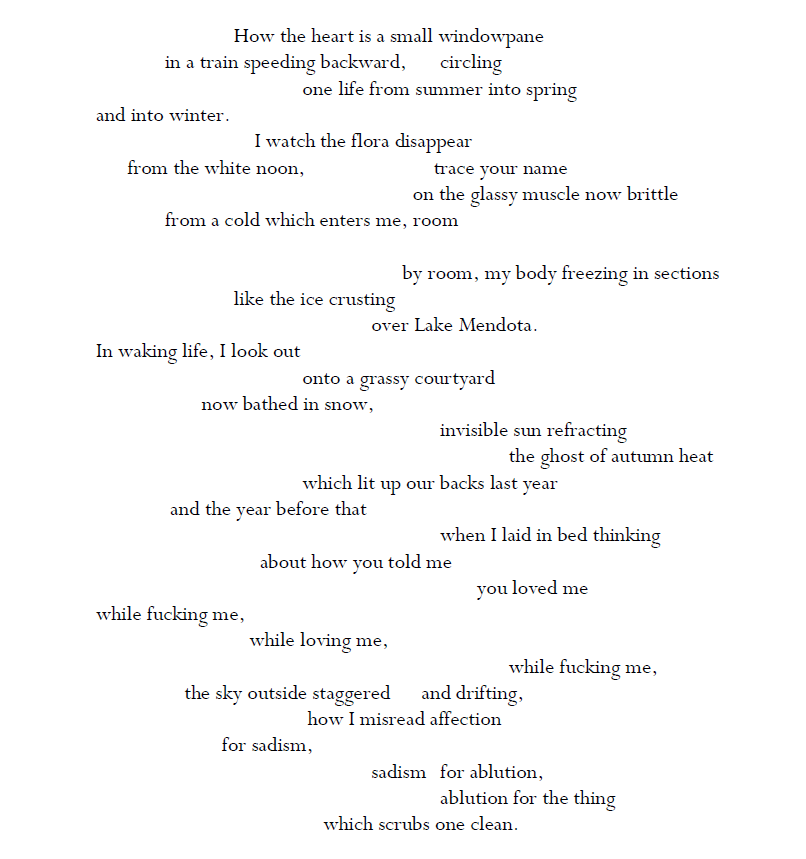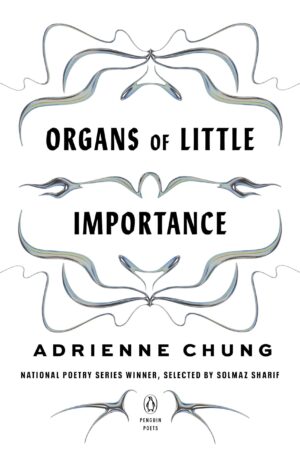In Their Own Words
Adrienne Chung on “The Day You Left, I Remembered”


Reprinted from Organs of Little Importance (Penguin 2023) with the permission of the author.
On "The Day You Left, I Remembered"
The first time I saw a frozen lake was from above, out the window of a high building. The glass panels stretched contiguously across the length of the room, below which the white expanse of Lake Mendota extended in all directions. I was visiting the campus of UW-Madison for admit weekend, but my attentions were anywhere but there. They were fixed on the lake, whose ghostly surface reflected an emptiness that I thought impossible on Earth. I felt like I was on a different planet: one inside of myself, alien and cold.
When I returned later that year to begin my graduate program, the ice had melted. Sailboats floated on the clear blue water and young people were sunbathing on the decks. There was no trace of winter and its marmoreal ice. It was as if it never happened at all—until it happened again (and again, and again…). Winter crept in with an ominous precision physically mirrored by the lake, whose icy rings closed in toward the center, inch by inch.
During this time, I watched Bong Joon Ho’s Snowpiercer
(2013), a sci-fi movie in which Earth has entered an uninhabitable ice age, and a train carrying the last remnants of humanity circles the globe ceaselessly. As it speeds along its track, passengers look out the window at Earth’s ruins, frozen in time and icy white as far as the eye can see. Outlines of deserted skyscrapers and crumbling highways articulate the horizon.
The Midwestern winters were cold, though the chill came from somewhere else. I had a habit of reciting to myself a particular C.P. Cavafy poem as I rode the bus to and from campus:
The City
You said: “I’ll go to another country, go to another shore,
find another city better than this one.
Whatever I try to do is fated to turn out wrong
and my heart lies buried like something dead.
How long can I let my mind moulder in this place?
Wherever I turn, wherever I look,
I see the black ruins of my life, here,
where I’ve spent so many years, wasted them, destroyed them totally.”
You won’t find a new country, won’t find another shore.
This city will always pursue you.
You’ll walk the same streets, grow old
in the same neighborhoods, turn gray in these same houses.
You’ll always end up in this city. Don’t hope for things elsewhere:
there’s no ship for you, there’s no road.
Now that you’ve wasted your life here, in this small corner,
you’ve destroyed it everywhere in the world.
I was, clearly, in a great headspace. Nonetheless, life goes on. The train keeps moving forward until one day (spoiler alert), the ice softens, then melts. Signs of life pierce the surface. A polar bear wanders the distance.



